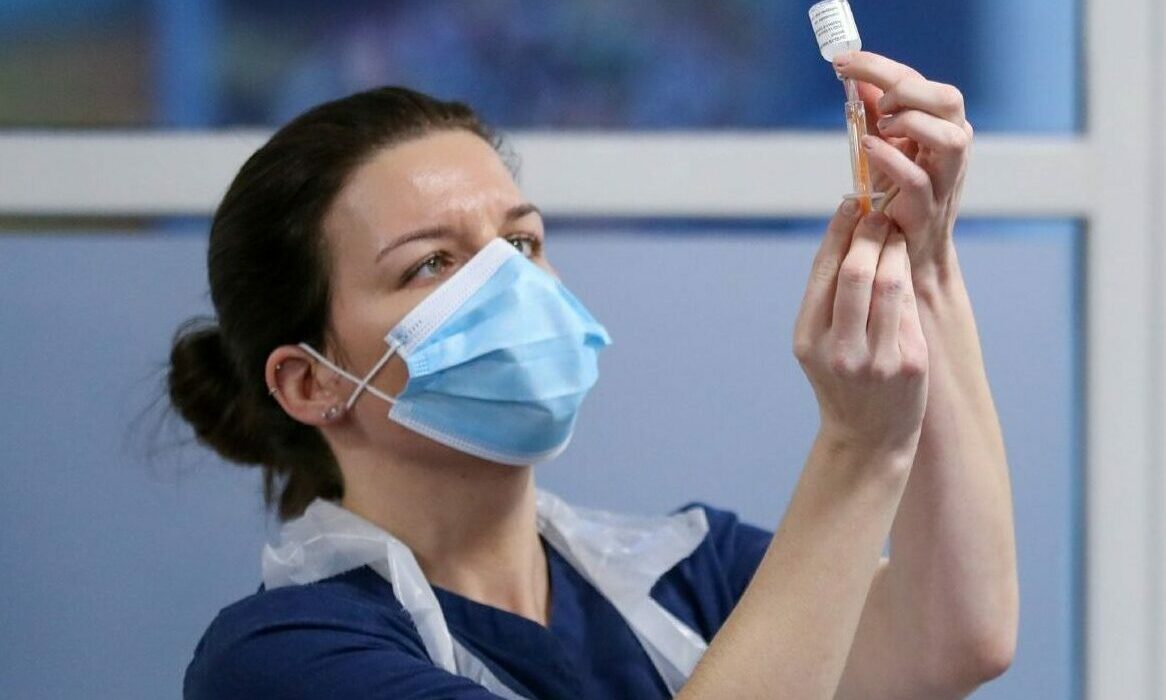One of the largest care home operators in Scotland has begun sacking workers who have refused to receive the Covid-19 vaccine.
Care home operator HC-One has made the vaccine mandatory for all staff in its care homes across Scotland, including Aberdeen and Inverness.
The Courier reports that several carers in Fife have lost their jobs, with one whistleblower saying that after being hailed as heroes earlier in the coronavirus pandemic, they are now unemployed.
HC-One says it has engaged with staff who have refused to be vaccinated ahead of the mandate.
The firm says 97% of its care home workers have taken up the vaccine, but it has now started to dismiss those who have refused.
From November 11 the vaccine will be mandatory for all care home workers in England, but this rule has not been adopted the Scottish Government.
‘Our homes need to be safe’
HC-One announced earlier this year that it would make the Covid-19 vaccine a condition of employment for all staff, including those in Scotland.
The company operates homes across the country, including Hamewith Lodge Care Home in Aberdeen.
The company also used to run Home Farm care home on Skye where 10 residents died following a Covid outbreak in May 2020.
At the height of the outbreak, 29 residents and 27 members of staff tested positive.
The operations of the home are now undertaken by NHS Highland following an inspection in May which raised serious concerns about the running of the home.
A spokesman for the company said: “Our homes need to be safe and also open to visiting.
“We want the people we care for and their families to be able to come together as they wish.
“We can’t miss any opportunity to make this happen, which is why we announced in July that the Covid-19 vaccine will be a condition of employment for all HC-One employees across the nations.”
Engagement ongoing with staff – with 97% now jabbed
The firm says the move is a “responsible” one to protect those it cares for or who work for the company.
The spokesman added: “The evidence clearly shows that vaccination cuts transmission and substantially reduces the risk of hospitalisation.
“Even more so now as the case rate in Scotland is rising to levels not seen since the second wave.
“Since the vaccination programme started, we have worked tirelessly to persuade colleagues to choose to be vaccinated which nearly 97% chose to do.
“Since the mandate announcement we have made every effort to explain the consequences to colleagues who chose not to be vaccinated.
“We have engaged at length, including on a one-to-one basis, with colleagues and their representatives to understand their individual reasons for refusing the vaccine.
“This week we have sadly started to dismiss colleagues who are not vaccinated, refuse to be vaccinated, and do not have an exemption.
We must put the health of our residents ahead of the very small number of individuals who do not wish to be vaccinated
“This is not something we want to do, however we must put the health and wellbeing of our residents and the vast majority of colleagues ahead of the very small number of individuals who do not wish to be vaccinated.”
Legal advice offered to employees
Jo Mackie, principal lawyer at Slater and Gordon, has provided advice on where employers and workers stand on mandatory vaccines.
She said: “If staff have genuine reasons why they cannot have the vaccine then they need to inform their employer straight away and in confidence.
“Employers need to be mindful of their obligations not only under health and safety law but also under the Equality Act 2010.
“For any employees worried about their job in light of the requirement for vaccines, employment law advice is highly recommended to protect your position.”


